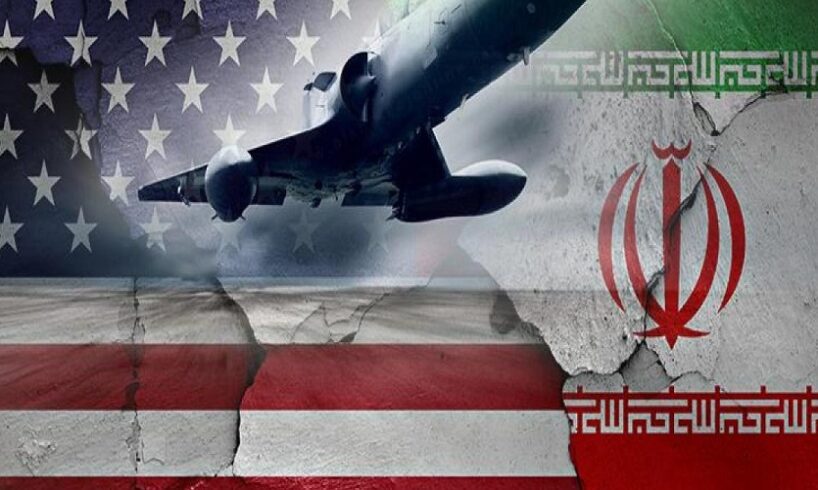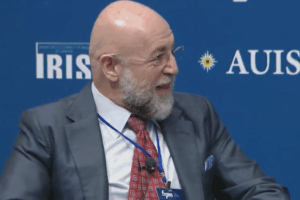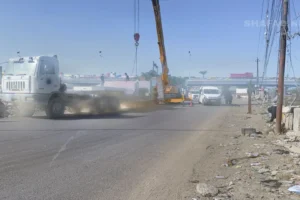
Shafaq News
The Middle
East appears to be entering what analysts describe as a “sensitive and
dangerous stage” defined by large-scale escalation across multiple fronts. A
growing number of experts warn that the fragile balances in the region could
collapse into a broader war involving Israel, Iran, and their allies — with the
United States looming in the background.
Yemen to
Gaza: Signals of Escalation
Palestinian
international relations expert Ashraf Aqqa told Shafaq News that recent
developments mark a crossing of red lines, pointing to the Houthis’ declaration
that attacks targeting their government represent “a major violation” — an
announcement that he sees as paving the way for a stronger Yemeni response.
“Yemen is
preparing a major strike against Israel that could disrupt the internal scene
there, as well as US calculations, obstructing attempts to liquidate the
Palestinian issue and prolonging the war in Gaza,” Aqqa said.
He added
that continued Israeli attacks on Lebanon despite a ceasefire, attempts to
disarm Hezbollah, and Israeli operations in southern Syria all point to a wider
confrontation. “Israel’s provocative policies toward Egypt, Jordan, Yemen,
Lebanon, and Syria are reshaping regional balances and fueling escalation with
Iran, which refuses to accept Israel’s hegemonic role in the region,” he
explained.
Lebanon and
the Logic of “No Retreat”
Lebanese
writer Murtada Samawi offered a parallel assessment, warning that the entire
region is moving toward “escalation on all fronts,” noting that Israel’s entry
into Gaza aims at total control, while Lebanon faces “hot days” amid insistence
on disarming the resistance.
Samawi said
Iran is also preparing for a new round of confrontation as the United Nations
reinstates sanctions. “The indicators suggest a state of tension ready to
explode at any moment,” he observed.
According to
him, Israel will not back away from its goal of dismantling the “Resistance
Axis,” a project supported by what he described as unlimited American political
and military backing.
Iran:
Assessing Capabilities and Limits
From Tehran,
international relations professor Hadi Issa Daloul stressed that Israel has
avoided confrontation with Iran in recent wars. Instead, he argued, Israel
relied on drone operations launched from Iran’s eastern regions, with US air
power filling the gaps.
“In the last
war in June, 90 percent of Israeli operations were carried out through these
networks, while 10 percent were US strikes. Israeli aircraft could not
penetrate beyond 85 kilometers into Iranian airspace,” Daloul explained to
Shafaq News.
He
emphasized that Iranian authorities have since dismantled these networks and
weapons depots, significantly reducing Israel’s options. “Today, Israel cannot
target sites inside Iran directly. It may instead resort to hitting diplomatic
facilities or external positions,” he predicted.
Daloul
dismissed the likelihood of Israel waging a new war without Washington’s full
involvement. “Tel Aviv cannot do anything alone. Its strength is not sufficient
to face Tehran without the United States.”
Researcher
Saleh al-Qazwini echoed this assessment, describing Iran’s response to recent
Israeli aggression as a “lesson” meant to deter further attacks. Yet he
cautioned that Israel remains unpredictable. “This entity cannot be trusted. It
seeks to weaken everyone in the region and disarm resistance in Lebanon, Syria,
Iraq, Yemen, and even Iran itself,” al-Qazwini told Shafaq News.
According to
Al-Qazwini, a renewed confrontation could either remain limited to Israel and
Iran or expand dramatically, depending on the involvement of the United States,
Europe, and other actors. “Just as others defend Israel, Iran’s allies will
defend it too. The scope of the war depends on how far the opposing side wants
to push it,” he said.
Iraq: The
Vulnerable Link
In Baghdad,
security expert Mukhlid al-Darb warned that a renewed Israel–Iran confrontation
would inevitably reverberate inside Iraq, describing the country as one of
Iran’s key remaining strongholds that has not yet been directly targeted,
unlike Hezbollah in Lebanon or the Houthis in Yemen.
“If Iraq
moves to support the Iranian front, there will be an Israeli or American
reaction against Iraq. That would destabilize internal security and create
openings for dormant terrorist cells and armed groups to exploit the chaos,”
al-Darb told Shafaq News.
He predicted
that Israel would aim to hit more sensitive Iranian sites than in past wars —
including energy, water, and other infrastructure crucial to the economy — in
order to generate public discontent and pressure against Iran’s leadership.
Read more: A House of Cards: Beirut and Baghdad on the front lines
Jerusalem: A
Countdown to Confrontation
From
Jerusalem, researcher Hussein al-Deeq went further, asserting that the coming
confrontation will be “more violent and decisive” than previous ones,
potentially targeting more of Iran’s top political and military leadership. He
said Israeli media outlets already forecast a clash before the end of August,
though the timing depends partly on European–Iranian negotiations over Tehran’s
nuclear program.
“This war
has received the American green light,” al-Deeq claimed, rejecting speculation
that Washington might abandon Israel. “That is completely unrealistic. The
American and Israeli outlook for the region is the same — the strategy of one
weapon across all fronts.”
He added
that calls to disarm factions extend beyond Gaza and Lebanon to Iraq as well, to
sever links between Iran and its regional allies — Hamas, Hezbollah, the
Houthis, and Iraqi groups.
Read more: Countdown to a wider war: Why Iraq is the most vulnerable link in regional escalation
Converging
Warnings, Diverging Timelines
While these
experts differ on the immediacy of war, they converge on the assessment that
the region is entering its most dangerous phase in years. Their insights sketch
a region poised on the edge of a wider war, whether triggered by an Israeli
strike, an Iranian response, or a miscalculation in Lebanon or Yemen.
For Israel,
the objective remains to dismantle resistance networks across the region,
backed by U.S. support. For Iran, the focus is deterrence and maintaining its
regional alliances. For neighboring states like Iraq, Lebanon, and Syria, the
danger lies in becoming battlegrounds for a confrontation neither they nor
their fragile political systems can sustain.
Written and
edited by Shafaq News staff.





